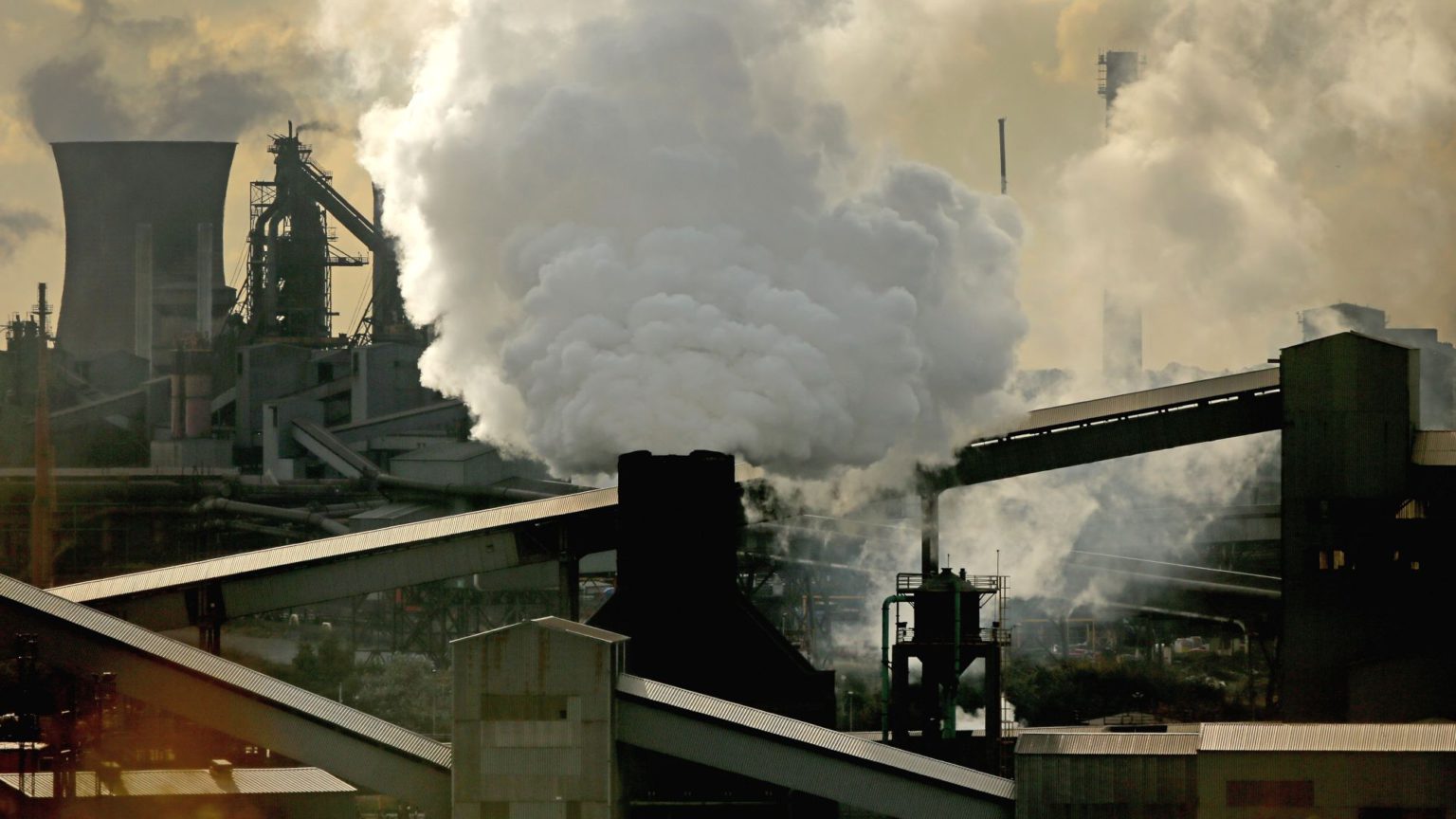
How to help British Steel workers
We need an ambitious programme to create new jobs and industries.
Want to read spiked ad-free? Become a spiked supporter.
News broke last week that British Steel had been placed in compulsory liquidation, putting 5,000 jobs at risk. This has sparked debate about the ailing British steel industry, and the effect Brexit may or not be having on it. British Steel’s owners claimed that, while the business had been in trouble for some time, ‘the additional blows dealt by Brexit-related issues have proven insurmountable’. Discussion has turned to how the government might help revive the industry.
It is possible to produce competitive steel products in Britain. But subsidising the insolvent British Steel plants in Scunthorpe and Teesside, or the struggling Tata Steel plants at Port Talbot and elsewhere, is not the way forward. In fact, the longer unprofitable zombie businesses like these are propped up, the more difficult it will be to generate the better and lasting jobs that people want. These businesses tie up resources wastefully and clog up the rest of the economy.
The government should not be expected to save loss-making, insufficiently productive jobs. It should not attempt to sustain Britain’s existing outmoded steelmaking businesses, whether by further loans, subsidies or nationalisation. What it should be doing (and hasn’t been, under successive administrations) is helping businesses create higher-productivity, durable jobs for all people who need employment.
First, let’s look at the real state of steelmaking in Britain. It is quite possible that we could create a productive steel industry, but we would need to start afresh. Existing plants are mostly obsolete. British steel production in Britain has fallen steadily from a peak of over 25million tonnes in the early 1970s, employing about 320,000 workers, to about eight million tonnes today, employing around 30,000. This protracted decline in output contradicts the primary blame for the ‘steel crisis’ so often attributed to Chinese ‘overcapacity’. China only took off as a leading steel producer from the start of the millennium, when British decay was already well entrenched.
The relatively faster decline in employment over the decades indicates that Britain’s productivity in steelmaking has grown, but not nearly enough to match the levels of modern steel plants in other countries. The primary reason for the deterioration in output and for inadequate productivity levels is the long-term lack of investment in new plants and modern technologies by Britain’s few remaining steel businesses. Creating a viable steelmaking industry needs considerable business investment in technologically advanced equipment and processes.
Without this, any remaining British plants will be unable to produce steel efficiently, as they have been for many years. Remember that the rebadged ‘British Steel’ plants were already unprofitable when Greybull bought Tata Steel’s struggling Long Products division for £1 in April 2016. Britain’s existing steelmaking capacity, of which about 60 per cent is exported, is mostly uncompetitive in world markets.
This means that the international weakness of the Scunthorpe, Teesside and Saltburn-by-the-Sea plants owned by British Steel long predated the 2016 Brexit referendum. British Steel’s underlying production shortcomings cannot be explained by the ‘Brexit uncertainties’ suggested by its owners, and then repeated by anti-Brexit politicians. The initial claims were likely highlighted as a way to get the government’s sympathy, so that it might cough up even more in loans or subsidies.
We should also be aware that Tata Steel’s remaining British plants are not much healthier than British Steel’s. They are being sustained primarily by profits made by the Tata group outside Europe. The EU’s recent blocking of a joint venture between Tata Steel and Germany’s ThyssenKrupp means that the viability of Britain’s other outdated steel operations, including the largest plant at Port Talbot, could also be under the spotlight again, sooner rather than later.
Some argue there is a ‘strategic’ necessity for retaining a (small) domestic steel-producing industry. But this argument is flawed. There is no ‘economic self-sufficiency’ or ‘national security’ case for subsidising inefficient British steel furnaces. Some say that without domestic steel production, we would not be able to build the planes, ships and tanks we might need to fight a future war. It’s an argument that resonates in Britain. But the truth is that any global war, in which Britain’s imported supply chains would be disrupted, is unlikely to be like the Second World War, and fought primarily with steel-heavy planes, ships and tanks.
Britain is already reliant on a lot of imports, other than steel, just to maintain modern life. We import food, clothing, energy, transport, industrial machinery, information technology, as well as the iron ore and coal needed for steelmaking. ‘Economic self-sufficiency’ is a romantic fantasy. It never existed, even at the height of Britain’s economic power. Yet modern, import-dependent Britain has in the past still allowed people to pursue decent livelihoods, and has been able to fight more than its fair share of wars.
Some of the potential bidders for the British Steel business may have the money and ambition to create modern, competitive steelmaking operations in Britain. If so, that would be welcome news for the current workforce and their families. But even this rosy scenario would not resolve all of today’s employment problems.
There is no guarantee that new steel ventures would be commercially successful. And the existing Scunthorpe and Teesside plants may not be the best places for new investments to be made. They would have to be physically restructured before being rebuilt with the latest technologies. Whereas on greenfield sites, you could start from scratch. Other locations in Britain may also be better in terms of logistics and infrastructure. And even if innovative steelmaking operations decided to invest in Scunthorpe and Teesside to take advantage of the existing workforce, they could well provide far fewer jobs than at present.
Whatever happens with British Steel, we have a collective responsibility to help the workers affected. To this end, Britain, and every other mature industrialised country, needs a public discussion about a state-led strategy for economic transformation. Under such a programme the state would directly spend public funds on the basic research and science that can germinate new economic sectors in the future. We would stop propping up zombie businesses, such as British Steel, that tie up resources and drag down the rest of the economy. We would withdraw the corporate welfare measures, such as ‘Buy British’ public procurement policies or specific tax credits, which protect incumbents from innovating challengers.
At the same time, we would help existing and new businesses invest in better (often imported) technologies to revolutionise the production of existing products and services, as well as launch new ones. And we would get rid of onerous regulations and policies of the sort that handicap British producers, including steelmakers, with exorbitant energy prices. Industrial electricity prices in Britain can be more than 50 per cent above those of other major EU economies.
But the government’s immediate responsibility here is to the people hit by economic change. In the British Steel case, that covers everyone financially dependent on its 5,000 employees, including those in the supply chain. Claims that 20,000 jobs in British Steel’s supply chain may be put at risk is probably an overestimate. Many workers will be redirected to other work as companies adjust. But it is likely that a number of businesses will be so dependent on British Steel that they cannot compensate in the short-term without redundancies. Some may even be forced to close down. This would also include businesses in the immediate vicinity of the plants, which currently offer consumer services to their employees.
While the official receiver negotiates with private bidders, the government should take responsibility for helping people transition from insecure, low-productivity jobs to new and better jobs. This could either be at the existing British Steel locations, after they are privately restructured and transformed, or more likely elsewhere. The government should provide the official receiver with a guarantee of time-limited finance – say for up to two years – to keep the British Steel businesses in operation and its employees in work.
Simultaneously, the government should lead a local task force to find or help create alternative employment for the workers impacted by British Steel’s demise. Ideally, this would be in the immediate Scunthorpe or Teesside areas, or in the wider regions of Humberside and the north-east. Workers would be helped with commuting arrangements, while those who want to relocate to employment further afield would be sponsored.
The government would no doubt say that anything like this would be ‘illegal’ under EU state-aid rules. But this is disingenuous. Three years after our decision to leave the EU, Britain should not still be under the auspices of EU rules. Plus, historically, Britain has spent much less on ‘state aid’ than other big EU countries, despite experiencing just as much, if not more, economic decay.
The British government should stop the excuses and simply get on with supporting the workers who will be impacted upon by the collapse of British Steel. If this were to cause any tensions with the EU, or spark any mischievous legal claims, the government should simply reject them as an illegitimate intrusion on sovereignty. An elected government’s policy goals – in this instance, to boost innovation and employment – take precedence over following EU rules.
Phil Mullan’s latest book, Creative Destruction: How to Start an Economic Renaissance, is published by Policy Press.
Picture by: Getty
Who funds spiked? You do
We are funded by you. And in this era of cancel culture and advertiser boycotts, we rely on your donations more than ever. Seventy per cent of our revenue comes from our readers’ donations – the vast majority giving just £5 per month. If you make a regular donation – of £5 a month or £50 a year – you can become a and enjoy:
–Ad-free reading
–Exclusive events
–Access to our comments section
It’s the best way to keep spiked going – and growing. Thank you!










Comments
Want to join the conversation?
Only spiked supporters and patrons, who donate regularly to us, can comment on our articles.